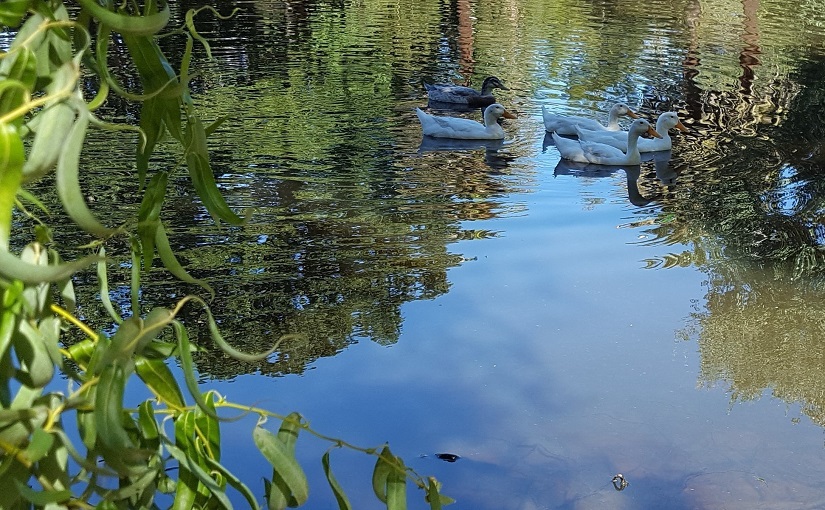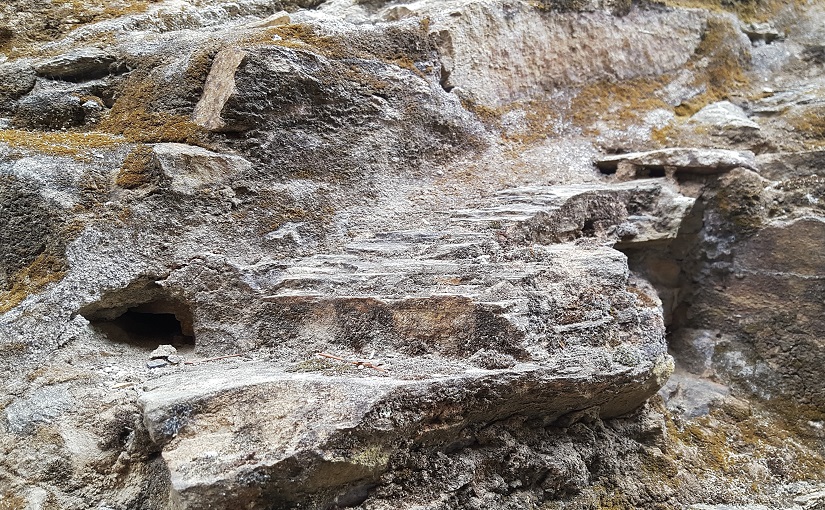Thinking about the things we say and do, it’s interesting to consider if anything’s without consequence. Even if we don’t “see it”, all these things effectively land somewhere, causing ripples that spread into the individual and collective lives of those around us. Words or actions perhaps exacerbating situations that then lead onto consequences for people we never meet.
It’s probably some version of “every action having an equal and opposite reaction” – that nothing’s really neutral, unnoticed or slipping into a void where it hurts no-one (Notes One). All we’re doing feeds into reality somewhere, be it one with a face or more impersonal and abstract systems such as global economics and its social impacts or the intricate balance of our own societies.
All the patterns of behaviour people are working so hard to map, predict and control must inevitably add up to complex social pressures and difficulties. Careless words, quick judgements, comedy brush-offs or distractions must all paint a picture of the distracted, atomised interactions filtering out through our lives. Doesn’t all this shape our attitudes, our feeling for what matters and what’s acceptable?
I’m struggling slightly to pull the threads of this thought together, but isn’t it true that everything we’re all doing travels out there somewhere? It’s not like none of it matters; it must all matter to someone. At some point, personal choices and collective trends presumably converge to create an impact that’s felt by one, if not many, people. Choices that, perhaps, get strengthened by seeing how everyone’s doing it and few seem to care.
We might be happily focused on our own reality – all the challenges we face, people we’re trying to please or impress, balls we’re juggling in our daily lives – and make many of our decisions either habitually or by way of the fact that any consequences truly won’t affect us or those we care about. It’s probably a “logical” position to take in terms of psychologically managing a modern life.
The attitude we’re showing toward others, the distant impact of our choice, the bigger picture of the world we’re helping create isn’t perhaps on our radar. Which, in many ways, might seem “fair enough”: bringing fully conscious awareness to all the systems that go into making the lives we lead is far from easy (Notes Two). Is it even possible to live in full awareness of everything that’s currently happening (plus, its historical context)?
Consequences can be so remote, invisible and disconnected. Take a small, but not insignificant, example: livestock worrying. It seems a picture of dog owners not fully taking responsibility for their pets in the UK’s green spaces; not, perhaps, knowing the knock-on effects of their interactions with sheep and cattle. Wild creatures that can then become stressed and unpredictable, causing devastating injury or loss of life.
Our action or inaction might seem unproblematic – the laws or warnings of others simply a meddlesome limit to personal freedom – but it could also be that consequences truly matter somewhere down the line.
Notes and References:
Note 1: Invisible ties
Note 1: What we create by patterns of behaviour
Note 1: Society as an imposition?
Note 1: What if it all means something?
Note 2: Problems & the thought that created them
Note 2: The idea of think globally, act locally
Note 2: How important is real life?
Note 2: Questions around choice
Perhaps standing alongside this quite nicely, “Minding the Earth, Mending the World” talked about the challenge of responding to life.










